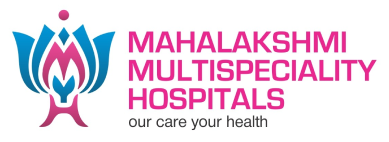
Coping with Pregnancy Loss and Recurrent Miscarriages
Pregnancy loss and recurrent miscarriages are emotionally challenging experiences that many couples face on their journey to parenthood. Understanding the statistics, causes, emotional impact, and coping strategies can provide essential support during this difficult time.
Miscarriage, defined as the loss of a pregnancy before 20 weeks gestation, is unfortunately common, affecting approximately one-third of all pregnancies. Recurrent pregnancy loss, characterized by two or more miscarriages, occurs in about 1% of women.
The primary cause of miscarriage is often chromosomal abnormalities or genetic issues in the fetus. However, repeated miscarriages may be indicative of underlying factors like uterine structural disorders (e.g., fibroids, polyps, scar tissue) or conditions like endometriosis. Addressing conditions like endometriosis may improve pregnancy outcomes.
The Emotional Toll of a Miscarriage
Experiencing recurrent miscarriages can deeply affect you on an emotional level, stirring up a mix of powerful emotions like sadness, grief, anger, guilt, and disbelief. It's a journey that often leads to feeling alone, questioning your own value and abilities. The ups and downs of these emotions can be incredibly intense, leaving you feeling uncertain and anxious about what lies ahead.
How To Cope With A Miscarriage?
Coping with the pain of recurrent pregnancy loss means navigating through a complex array of feelings, finding solace in the support of those close to you and professionals in healthcare. It's crucial to recognize and honor these emotions, allowing yourself the space to grieve and find healing in a nurturing environment.
Here are some tips to help you:
Seek Support
Connect with friends, family, or support groups who understand and can provide empathy and validation. Consider professional counselling or therapy to navigate complex emotions and develop coping strategies.
Understanding Grief
Allow yourself to grieve the loss in your own way and at your own pace. Remember that it's normal for emotions to fluctuate, and healing takes time.
Communication
Communicate openly with your partner about your feelings and experiences. Recognize that men and women may cope differently and offer support in ways that resonate with your partner.
Self-Care
Prioritize self-care activities that promote emotional well-being, such as exercise, relaxation techniques, and hobbies. Be gentle with yourself and practice self-compassion as you navigate the healing process.
Moving Forward
Schedule Medical Evaluations
Following multiple miscarriages, it's vital to undergo a medical assessment to uncover potential reasons. Consulting with a reproductive health specialist offers valuable insights. Evaluation includes medical history review, physical examination, and specialized tests to detect chromosomal, uterine, hormonal, or autoimmune issues. Tailored treatment plans may involve hormone therapy, surgery, or lifestyle adjustments for optimal reproductive health.
Plan for the Future
After undergoing a medical assessment, it's crucial to have open conversations with your healthcare provider about planning for future pregnancies. Discussing timing and readiness considers both physical and emotional factors. Address any worries or fears about future pregnancies to develop a supportive plan together. Your healthcare provider can offer guidance and personalized advice to enhance the chances of a successful pregnancy while minimizing risks from recurrent miscarriages.
Find Hope
In the midst of recurrent miscarriages, Mahalakshmi Hospital offers hope through specialized treatments and support for pregnancies. Our expert team provides compassionate care, guiding individuals towards optimism and resilience. Through our resources and personalized assistance, we empower individuals to navigate parenthood with strength and confidence.
Remember, healing takes time, and our support is here for you.

